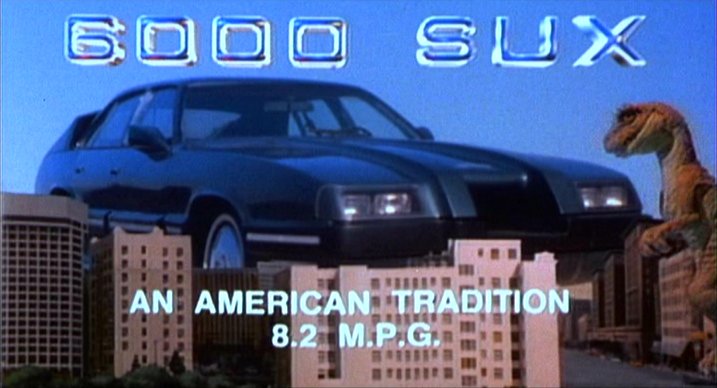Yes. It is. It's a terrible analysis with anecdotal statements or total misreads of markets or just outright fabrications. The entirety of the argument is solely focused on the here and now, as if 150 million drivers are going to switch to an EV tomorrow, rather than the market trends over the last decade. Nearly every model Tesla is at the same price or cheaper than it was 3 years ago, the overall auto market has seen prices expand by 27% from the end of 2019 to the end of 2022. We are rapidly approaching the point at which a Tesla Model 3 will sell for less than a kitted-out Camry.
Ford sells their Mustang Mach-E for more than Tesla sells its Model Y and yet they're losing money on their vehicles, while Tesla is making 20% margins. Ford loses about what they sell their vehicles for when accounting for capital expenditures. That's why it's silly to analyze electric vehicles by the broader market and you should rather focus on the market leader, because the leader's competitors have not matured their production or technology to the point where they're even competitive within their own market segment let alone the broader market.
In the last page you have:
Rivian: $42,00 repair cost.
Rivian has, produced <35,000 vehicles (they produced just over 9,000 in Q1 and trying to compare it to companies as large as
Toyota who make that in a day and a half. You have an argument that EV's are depreciating faster than gas vehicles, when the reality is that the vast majority of that depreciation is localized on bad EVs from 3-5 years ago. The BMW i3, referenced in the article, had a range that capped out at 200 miles, [u]70 miles lower than the shortest than the shortest range Tesla.[/u] Of course they depreciate faster, because they deployed the worst iteration of the technology 3 years ago and the technology progressed to make those iterations look comical.
Tesla's on the other hand depreciate slower than the market average.You have a person that says that the carbon offset for an EV takes 5-7 years. The only way you come to that conclusion is if you calculate it in a worst-case scenario for the electric vehicle and the best case for the gas vehicle. Even if it did take 5-7 years it would still result in less carbon emissions, because neither vehicle is bound for the junkyard after 5-7 years.
Tesla's fleet analysis shows that vehicles retain around 88% of their initial battery capacity after 200,000, the equivalent of 14 years worth of driving. The actual offset period for an EV is about 1-2 years worth of driving,
Tesla claimed in their 2021 impact report that production emissions would be offset after 6,500 miles (pg 57), which is less than 6 months worth of driving for the average drive. That's using the global average energy mix. Regardless, if you're concerned about the environment buy a used car.
You have people arguing that battery pack replacement is $20,000 as if an individual buying an electric vehicle today is going to have to replace their battery pack today. Over the last 10 years the cost of a kWh of lithium batteries has dropped by 90% and is expected to drop by another 50% before the end of the decade, with replacement costs possibly falling even further due to the shift from NMC batteries to LFP. In 15-20 years, when the battery pack has reached its end of life an individual is going to be able to recycle the battery and buy a better battery for cheaper than what was in the car when they bought it. The reality is that the proportion of people that will ever actually replace a battery in an EV is near zero, and when they do it will almost certainly be an upgrade from the battery they replaced.
You have a person quoting a survey from 2 years ago, done on electric vehicle owners from 5+ years ago (prior to the introduction of the Model 3), saying that it said almost all electric vehicle drivers go back to gas,
when the study actually said that 20% of drivers return to gas not all, and not even nearly the majority. That was done when the most popular electric vehicle on the road was a Nissan Leaf (second place wasn't close), and the number two most popular vehicle was a Chevy Bolt. Two vehicles that belong to the "rapid depreciation" category, because they suck in comparison to modern electric vehicles and were poorly engineered from the outset, doubly so when compared to the market leader's vehicles.
The rate of return to electric vehicle drivers returning to gas is going down and
Tesla has the highest customer retention rate in the industry by a wide margin.When you look at a technology you have to analyze it based upon the best implementation of the technology, not the worst implementation because consumers are going to lean towards the best implementation and the worst implementation will either have to adapt towards the best implementation or those companies will go out of business. It is why Stellantis, GM, and Ford may no longer be around in a decade. It's why you have people that sincerely believe that Tesla will achieve 20 million vehicles annually by 2030, because they have a decade head start on cost reductions/technology optimizations, and they don't believe the traditional OEMs will be able to compete on cost. 20 million vehicles is twice as many as the largest current largest auto manufacturer, Toyota, sold last year.






 [/url]
[/url] [/url]
[/url] [/url]
[/url] [/url]
[/url] [/url]
[/url]